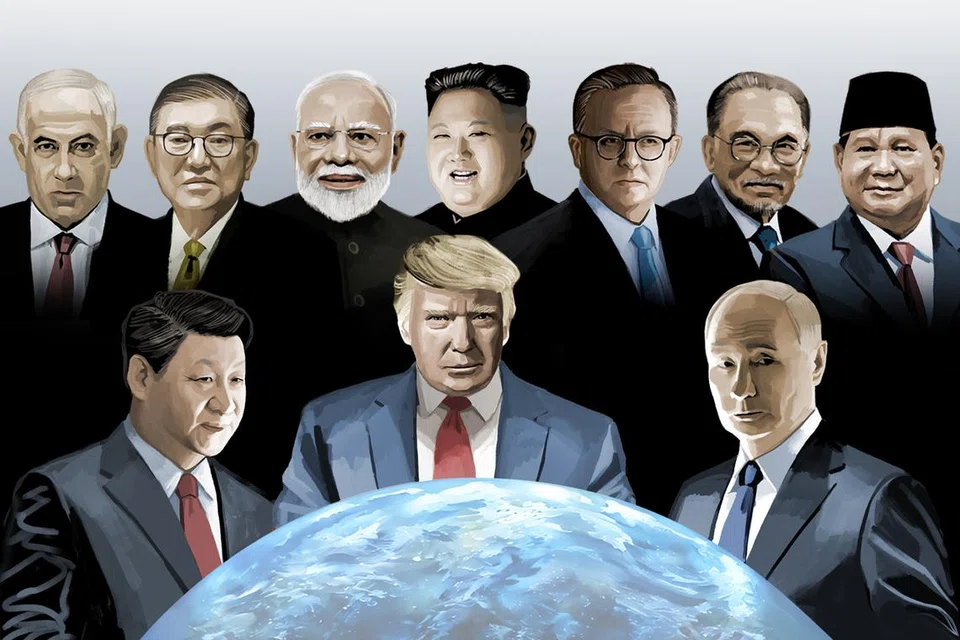Top 10 Best Politicians in the World in 2025
In a world full of challenges and transformation, leadership plays a critical role. In 2025, political figures are being judged not only on policies but also on their ability to inspire, lead with integrity, and adapt to change. Based on recent approval ratings, media influence, and global impact, here are the Top 10 Best Politicians in the World in 2025.
1. Narendra Modi – Prime Minister of India
Approval Rating: 75%
Narendra Modi continues to be one of the most influential leaders globally. Under his leadership, India has seen rapid digital transformation, infrastructural development, and economic growth. His foreign diplomacy and “Make in India” initiatives have boosted the country’s global image.
2. Claudia Sheinbaum – President of Mexico
Approval Rating: 66%
Claudia Sheinbaum made history as Mexico’s first female president. Her administration focuses on social justice, climate policy, and economic reforms. Her calm and science-driven approach has earned her widespread respect both in Mexico and internationally.
3. Javier Milei – President of Argentina
Approval Rating: 65%
Known for his bold libertarian reforms and passionate rhetoric, Milei is transforming Argentina’s economic system. His policies aim to reduce inflation, cut government spending, and empower private enterprise. Though controversial, his approval ratings remain strong.
4. Karin Keller-Sutter – President of Switzerland
Approval Rating: ~60%
Keller-Sutter’s leadership has been marked by pragmatic decision-making and strong crisis management. She has upheld Switzerland’s image as a stable, neutral, and prosperous nation with a focus on sustainability and innovation.
5. Donald Trump – President of the United States
Approval Rating: 52%
After a dramatic return to the White House, Donald Trump continues to dominate U.S. and global politics. His bold America-first policies, immigration reforms, and economic nationalism keep his base loyal, while critics remain divided.
6. Anthony Albanese – Prime Minister of Australia
Approval Rating: 46%
Albanese has earned praise for his efforts in improving climate policy, boosting worker rights, and building stronger ties with Asia-Pacific nations. His government’s practical and progressive approach has kept public support steady.
7. Dick Schoof – Prime Minister of the Netherlands
Approval Rating: 42%
A newcomer to many global rankings, Dick Schoof is leading the Netherlands with a firm hand on security, digital innovation, and environmental sustainability. His technocratic style resonates well with Dutch citizens.
8. Donald Tusk – Prime Minister of Poland
Approval Rating: 42%
Tusk’s return to Polish politics has sparked hope for democratic revival and EU integration. His leadership promotes judicial independence and media freedom, reversing some of the more extreme policies of previous administrations.
9. Giorgia Meloni – Prime Minister of Italy
Approval Rating: 42%
Italy’s first female Prime Minister, Giorgia Meloni blends traditional conservative values with a modern European strategy. Her leadership during economic recovery and migration crises has earned her consistent support.
10. Ulf Kristersson – Prime Minister of Sweden
Approval Rating: 38%
Leading a right-wing coalition, Kristersson emphasizes security, integration, and fiscal discipline. While opinions are split, his strategic alliances and steady reforms make him a notable figure in European politics.
🌐 Global Trends Among Top Politicians
The top politicians in 2025 are not necessarily the most famous — they are the most effective. Common traits include:
Strong public communication
Economic reform initiatives
Climate and tech-forward policies
Handling of global crises like inflation or migration
🏁 Conclusion
From Asia to Europe to the Americas, these political leaders are shaping the future of our world. Whether through bold reform, calm diplomacy, or resilience in adversity, each of them reflects a style of governance suited for today’s rapidly changing times. As the world faces new challenges in 2025, these leaders remain at the forefront of political progress.



